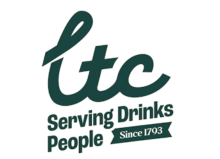HIT Training Ltd Welcomes Government Reforms to Functional Skills and Shorter Apprenticeships

HIT Training Ltd, alongside its divisions HIT Training, Connect2Care and EDN, welcomes the Government’s reforms to Functional Skills requirements and the introduction of shorter apprenticeships. These changes will remove unnecessary barriers for apprentices and provide greater flexibility for employers, ensuring more people can access high-quality training while accelerating economic growth.
For years, HIT has championed the removal of the 12-month minimum apprenticeship duration, advocating for a more adaptable system that meets the needs of both apprentices and businesses. In anticipation of this reform, HIT has already developed a range of shorter apprenticeship programmes, set to launch on the day the rule change comes into effect.
Jill Whittaker, Executive Chair of HIT Training Ltd, comments:
“We welcome the introduction of shorter apprenticeships. Before the 12-month minimum, most Level 2 apprenticeships in key sectors like hospitality and care were completed within eight to ten months. Since then, apprenticeship numbers have fallen significantly. This change will be a huge win for learners and employers alike. However, we urge ministers to ensure this flexibility extends across all sectors.
“Reducing the minimum apprenticeship duration to eight months will support industries with an urgent demand for skilled workers, allowing learners to qualify faster while still meeting industry standards.”
A Win for Employers and Learners
The Government’s reforms mean businesses can now decide whether adult apprentices (19+) need to complete Level 2 English and maths qualifications, bringing apprenticeships in line with other post-16 pathways. This flexibility will help address key skills shortages in key sectors such as social care, hospitality and construction.
Mike Worley, Managing Director at HIT Training, says:
“There are many reasons why achieving maths and English at school may not have been possible, but it’s important that we don’t let this hold people back from progressing in their careers. Apprenticeships should be about developing practical skills and workplace confidence. The focus should be on embedding these core skills in a way that supports apprentices in their roles, rather than simply ticking a box.
“However, we must ensure that in removing the obligation, we don’t remove the opportunity. Building confidence and skills in maths and English is essential for personal and professional growth, and it’s important that they remain part of apprenticeship programmes.
“As apprentice providers and employers, we have a responsibility to continue offering high-quality English and maths support to those who want and need it – ensuring every apprentice is equipped for success in their chosen career – but the requirements should not be a barrier to apprenticeship completion.”
Commitment to Quality Learning and Outcomes
HIT remains committed to delivering high-quality training. Despite the changes, Functional Skills support will continue to be a core part of HIT’s apprenticeship programmes. HIT currently boasts some of the highest pass rates in the further education sector (recently being nominated for an ATA Award for Functional Skills Delivery) and we will maintain its focus on developing essential skills that empower learners in their careers making them more productive for their employers.
Get Involved
One of the unique strengths of HIT is its deep collaboration with the sectors it serves. HIT looks forward to working with employers and industry leaders to implement these changes and ensure apprenticeships remain a strong and accessible pathway for career progression.
Contact HIT today to ensure your organisation makes the most of these new flexibilities while maintaining high-quality training and development opportunities.
For more information, visit www.hittrainingltd.co.uk or contact our team at info@hittraining.co.uk












































































































































